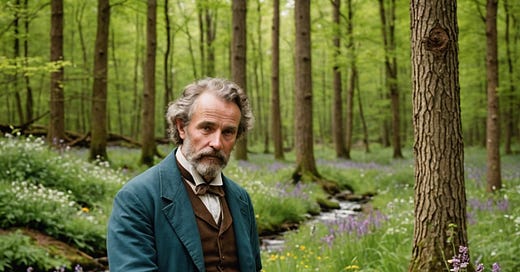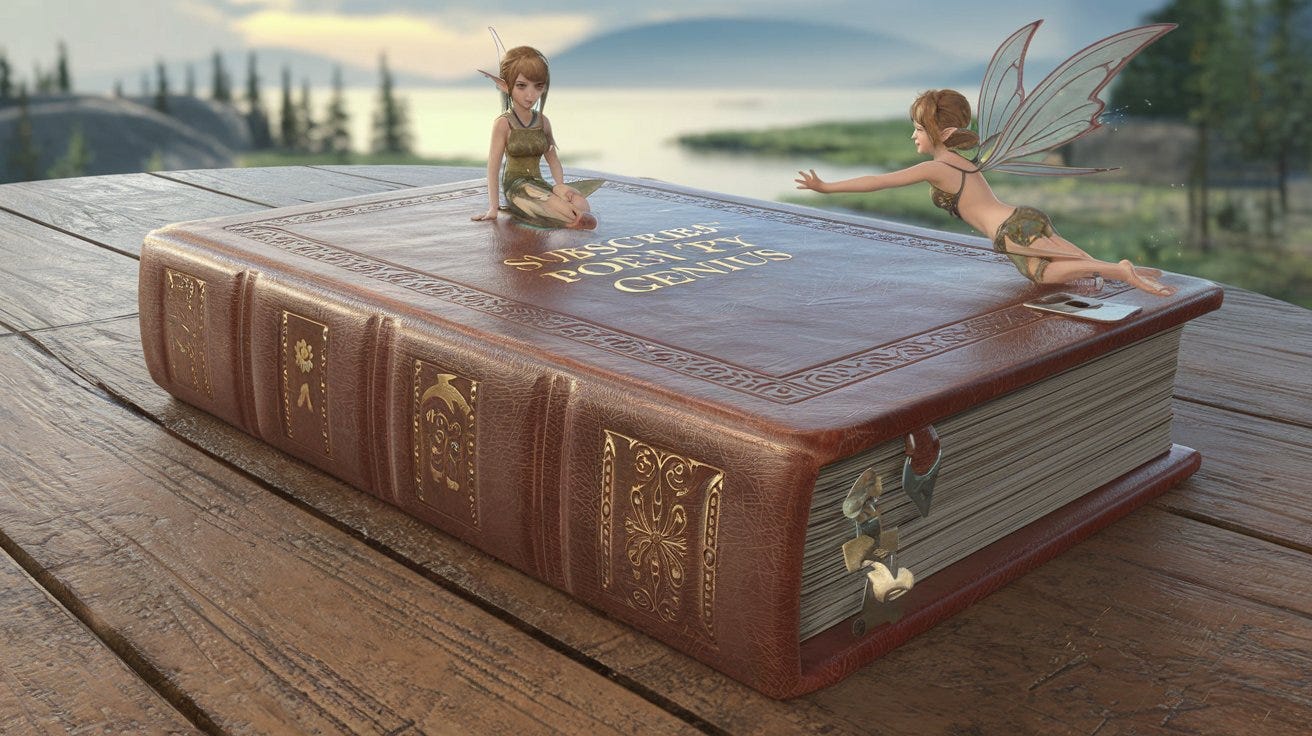THE POETRY POLICE: How Literary Gatekeepers Are Ruining Everything for Everyone
A field guide to spotting the verse vigilantes who think they own the entire concept of putting words on a page
There's a special circle of literary hell reserved for poetry snobs, and it's probably decorated with first-edition chapbooks and attended by people who unironically use the word "oeuvre" in casual conversation. These are the folks who've appointed themselves the Supreme Court of Syllables, and they're coming for your haikus, Karen.
You know who I'm talking about. They're the ones who wince when you mention that you enjoy Billy Collins, as if you just said your favorite cuisine is gas station hot dogs. They're the poetry professors who spend entire semesters explaining why accessible poetry is actually the enemy of art, and the workshop leaders who treat every line break like a doctoral dissertation defense.
SIGNS YOU'VE ENCOUNTERED A POETRY SNOB IN THE WILD:
They use the phrase "real poetry" unironically
Apparently, there's fake poetry wandering around out there, fooling innocent readers into thinking they're experiencing art when they're actually just enjoying themselves. The horror! If people can understand your poem without a PhD in postmodern literary theory, it's obviously not "real" poetry. It's just emotional fast food for the intellectually unwashed masses.
They name-drop poets you've never heard of like they're personal friends
"Oh, you like Mary Oliver? That's... nice. Have you read any Jorie Graham? Or perhaps some early Forrest Gander? No? Well, I suppose not everyone can appreciate the nuanced intersectionality of contemporary eco-poetics." These people collect obscure poets like Pokemon cards, and they'll use them to bludgeon you into submission at literary gatherings.
They believe suffering is a prerequisite for authenticity
According to the Poetry Police, unless you've been personally victimized by at least three major life traumas and can reference them through elaborate metaphors involving industrial decay, you have no business picking up a pen. Writing about joy? How pedestrian. Celebrating love without mentioning the inevitable heat death of the universe? Amateur hour.
They dismiss entire genres as "not really poetry"
Spoken word? Performance poetry? Slam poetry? Instagram poetry? Children's poetry? Song lyrics? All inferior art forms practiced by people who apparently missed the memo that poetry should be as inaccessible as possible. If more than twelve people can enjoy your poem simultaneously, you've clearly done something wrong.
They treat poetry workshops like gladiator arenas
These people don't critique poems; they perform autopsies on them. They'll dissect your metaphors with the enthusiasm of a serial killer explaining their methodology. They use phrases like "the work fails to interrogate its own assumptions" and "the speaker's voice lacks sufficient destabilization." They make you feel like you've committed a war crime by writing about sunsets.
WHAT THEY'RE ACTUALLY AFRAID OF
Here's the dirty secret: poetry snobs aren't protecting art from contamination. They're protecting their own sense of superiority from democratization. They've built entire identities around being the only people who "get" poetry, and the idea that poetry might actually be for everyone threatens their entire worldview.
They're terrified that if poetry becomes accessible, enjoyable, and – God forbid – popular, they'll lose their status as the High Priests of the Sacred Word. They've confused difficulty with depth, obscurity with sophistication, and exclusivity with excellence.
THE REAL DAMAGE
While these literary gatekeepers are busy protecting poetry from the unwashed masses, they're actually killing the thing they claim to love. They're convincing entire generations that poetry isn't for them, that unless you've spent years studying the subtle differences between various schools of modernist verse, you have no right to the art form.
They're creating a world where people apologize for liking accessible poems, where readers feel ashamed for preferring clarity over confusion, where writers abandon their natural voices to sound more "serious." They're turning poetry into a museum piece when it should be a living, breathing thing that connects with actual human beings.
HERE'S A RADICAL IDEA
Maybe – just maybe – poetry is big enough for everyone. Maybe there's room for both the experimental verse that makes you work for meaning and the clear, direct poem that hits you in the chest like a friendly punch from someone who gets it. Maybe the person who finds solace in Instagram poetry and the person who writes seventeen-page analyses of Anne Carson can coexist without the universe collapsing.
Maybe the best poetry is the poetry that does its job: making us feel less alone in this ridiculous, beautiful, terrible world. Whether that happens through perfect meter or broken syntax, through rhyme or free verse, through difficulty or simplicity, doesn't matter nearly as much as whether it works.
So to the Poetry Police: stand down. Put away your red pens of righteousness and your syllabi of superiority. Poetry doesn't need your protection. It needs your participation, your passion, and your willingness to let other people love it in their own way.
The art form is stronger than your fear of its democratization. Trust it. Trust the readers. And maybe, just maybe, trust that there's more than one right way to put words together and call it poetry.






